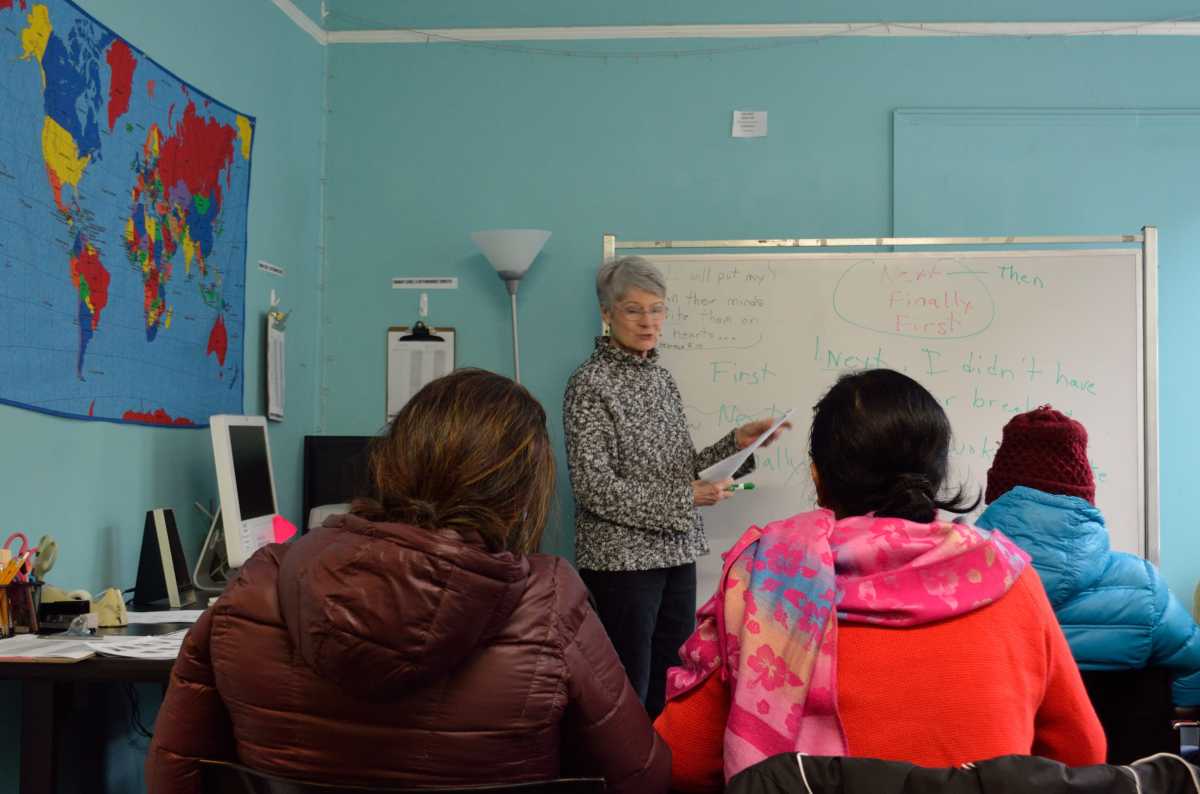BY ASHA MAHADEVAN
One recent morning at the South Asian Center in Jackson Heights, around half a dozen women sat in a classroom and joined Audrey Olsen in reciting, “First, I woke up late. Then, I didn’t have time for breakfast. Finally, I was late for work.”
This was one exercise that Olsen, a volunteer English teacher at the center, uses to teach the class the basics of sentence sequences.
The center, a branch of the Christian organization Urban Nations Outreach, offers free English classes to immigrants. Every semester, about 150 students enroll in the classes, said Camille Samuel, the director of the center.
“They come from different backgrounds. Some are educated, some didn’t have the chance to go to school,” Samuel said. She rattles off a list of countries her students come from: India, Bangladesh, Nepal, Sri Lanka, Thailand, China, Pakistan, Ecuador, Colombia, Mexico, Dominican Republic, Indonesia, Honduras, Costa Rica and Peru, to name a few.
Many of these regions have long-standing conflicts with each other, such as India and Pakistan or China and Tibet. Yet in class, these issues don’t rear their heads.
As Olsen explained, “All the women have the same problems: trying to give their kids a better life, learning a new language. There is so much common ground that all the differences fall away. Many times, a Pakistani student sits next to a Bangladeshi or Indian student. It doesn’t matter. They work in pairs with people they’d never speak to if they were in another country.”
The students build friendships that go beyond the class hours. Shan Shiyandani, from Sri Lanka, went shopping with her Korean, Indian and Bangladeshi classmates. Ayesha Ali, from Bangladesh, is happy that she can now speak in English and is friends with her classmates from India, Pakistan and Tibet.
It’s not just the women. Bob Tsui, 78, an immigrant from China, is in the advanced level class taught by George Vengal, from India. One of his classmates is from Tibet.
“We are not political,” he said. “We are friends, classmates.”
“I’ve had Pakistani students,” added Vengal, “and never had any problems. We are all the same. We learn from each other about their way of life, and to respect other cultures.”
The class, which also consists of Kitchtat Tassanapanich from Thailand, even went out for Thai food together.
The only thing that seems to matter is that everyone is learning a language that makes it easier for them to navigate the society of a foreign country.
“The aim is to not just speak English, but enjoy life here,” Olsen said. The differences, Tsui noted, are just government politics.
As Tassanapanich put it, “Four years ago, I joined the beginner’s class. When I visited the doctor, I couldn’t explain my problem. I needed a translator. Now, I can talk to everybody in every situation.”
RECOMMENDED STORIES





































